Is Genesis History?
Introduction
A couple of years ago the documentary “Is Genesis History?” was released. This documentary aims to defend the truth of the Christian worldview by defending the historicity of the early chapters of the Bible from a scientific perspective. The documentary attempts to accomplish this by demonstrating evidence in support of intelligent design and a young (~6000 years old) creation. As those who follow this blog know, I do not hold to the view that the universe is 6000 years old, as Del Tackett and the other contributors to “Is Genesis History?” do, yet I affirm the historicity and scientific accuracy of the Genesis accounts of origins.
Because many people (including those in this documentary) believe that the historicity of these early chapters and a young earth interpretation of them cannot be separated, a friend has asked me to offer some comments in the way of clarifying this common misunderstanding and some other concerns in the movie. There is much unnecessary confusion and heat in the Church concerning the debate over origins, so I am hoping to provide a charitable critique in the context of Christian unity and love.
Areas Of Agreement
Since this post will focus primarily on some points of disagreement, I do want to start with what I agree with that was presented in the documentary. First, obviously, we agree that the Christian worldview accurately describes reality (is true). That alone means that our agreements outnumber our disagreements dramatically; we are brothers and sisters in Christ, part of one Body, neither greater nor lesser in the Kingdom or more or less useful in the Kingdom (1 Corinthians 12).
Second, there are actually numerous areas specifically related to origins that we do agree upon. A couple of years ago I wrote a post that lists out 40 of these points of agreement on origins: What Do Young Earth and Old Earth Creationists Agree Upon Regarding Origins? It is important to keep these points of agreement in mind so that as unbelievers view our behavior towards one another in the midst of disagreement, they will see love and reconciliation in Christ modeled. As Dr. Hugh Ross states in his latest book “Always Be Ready: A Call to Adventurous Faith“:
Third, we agree on the inerrancy of Scripture. It is God-breathed (2 Timothy 3:16-17); thus it is true in all that it affirms. We also agree upon the authority of Scripture. All disagreements are not regarding what Scripture is or its authority in our lives but rather on what it means in the particular areas of disagreement (disagreement on meaning in one area does not necessitate disagreement on meaning in another).
Fourth, there were many things explicitly said throughout the documentary that I also find strong agreement with. These agreements range from agreements about the failure of high criticism to the denial of common ancestry. As I was taking notes while watching, I kept a running list of these agreements, and here it is (with links to my reviews of books that dive deeper into a defense of the particular item):
- Genesis is an accurate historical account (Navigating Genesis)
- Literal days, narrative, historical (Navigating Genesis)
- Genesis is one long historical narrative (The Bible Among The Myths)
- The historical basis of Christianity, however, is not lost if Genesis is not history (we have the gospels). (The Historical Jesus)
- Fossil record shows creation of organisms, stasis of that organism, and disappearance of the organism (no evolution). (More Than A Theory)
- Deny blind faith- there is no conflict between science and faith (Forensic Faith)
- Microevolution is valid, while macroevolution is not (More Than A Theory)
- Animal similarity in genetics and patterns, but not in ancestry (More Than A Theory)
- Designed/engineered ecosystem (Improbable Planet)
- Earth/Moon system is sized for perfect eclipses (Improbable Planet)
- Literal Adam and Eve (Who Was Adam)
- Higher criticism is wrong (Navigating Genesis)
Finally, as a computer technologist, I was excited to hear that Del Tackett’s formal training was as a computer scientist. I really was hoping that he was going to bring our field into the documentary in support of God as the Intelligent Creator (there are many areas where computer science can be appealed to argue for a beginner, a designer, free agency, and the validity of cumulative cases, just to name a few). Unfortunately, he did not, but I do hope that he does in a future documentary. Check out “The Programming of Life” for an example of one of these arguments.
Now, as I mentioned in the introduction, there are several areas regarding origins which I believe “Is Genesis History” got wrong. I am going to attempt to keep my explanations short in this post because there are quite a few, so the case that I present for each inaccuracy is not meant to be comprehensive, but it is still meant to be sound. I will include links to articles and/or books throughout for further investigation. I have categorized the disagreements into three different categories for easy location later if you want to refer to this post in the future. Let’s begin with the philosophical issues.
Philosophical Issues
False Dichotomy
At the very beginning of the documentary, it is proposed that only two options exist regarding origins: either naturalism or a young-earth creationist view. Because of the fact that they intend to investigate an important historical event, it is important that they do not preclude any options before their investigation even begins. If an investigation reveals that neither option is viable, then what is the Christian to do? Because of this drastic philosophical mistake from the beginning of the film, if a Christian is ever convinced that the universe is ancient, then it is implied (if not explicit) that the creators of the film believe that the logically consistent person must reject Christ as well. However, other views do exist, so when a Christian sees the compelling evidence from God’s creation that it testifies to an ancient universe, there is no need to jettison Christ or even the historicity of the early chapters of Genesis.
Old earth creationism as proposed by Reasons to Believe holds firmly to the historicity of the Gospels and the historicity of the early chapters of Genesis and does not fall by the fatal critiques against either naturalism or young earth creationism. Contrary to what is implied at the beginning of “Is Genesis History,” rejection of young-earth creationism does not logically necessitate rejection of the historicity of the life, death, and bodily Resurrection of Jesus Christ (see “Origin Science: A Proposal For The Creation/Evolution Controversy“), and a rejection of young-earth creationism is not a compromise of truth but a compromise of falsehood, which is precisely our goal- reject falsehood and follow the evidence from God’s creation exactly where it leads. If you are interested in the evidence for a historical reading of Genesis and the gospels, check out these awesome books:
- The Bible Among The Myths
- Cold Case Christianity
- The Historical Jesus
- The Risen Jesus and Future Hope
Logical Fallacy- Hasty Generalization
In the documentary, Tackett and the contributors make the logical mistake of arguing that since quick processes created a few things (some geologic formations) that they created all things (all geologic formations). This is problematic for two reasons. First, it is a logical fallacy, so it invalidates their conclusion that the Flood of Noah is responsible for the formation of the Grand Canyon (and all other geological features). Second, in this argument, they assume that old earth creation models allow for only slow processes, when in fact they allow both slow and quick processes. If the young earth creationist finds solid evidence for a quick process, that evidence is perfectly compatible with an ancient earth. The task before the young earth creationist is to provide solid evidence that the other formations also came about by a geographically global flood. In fact, when the evidence of these long processes is examined in the context of each other, we see powerful evidence of a grand orchestrated project culminating in a home for humanity (see “Improbable Planet; How Earth Became Humanity’s Home“).
Logical Fallacy- Conflation
Perhaps the first issue described above is the result of the fallacy of conflation. Naturalism and an ancient universe are not the same. Naturalism is a philosophical position that denies the existence of anything outside this universe. An ancient universe simply is a measurement of the amount of time that has passed since the creation event. Through the use of this conflation, the argument is made that since naturalism is false so must any view that holds that the universe is ancient. Because the argument employs the use of a fallacy, its conclusion is invalid. Naturalism can be false while the universe is ancient, and the same evidence that has forced scientists to concede a finite (but ancient) universe is the same evidence that argues powerfully for God as Creator and Designer. See these three books:
- The Creator Revealed: A Physicist Examines the Big Bang and the Bible
- Creator and the Cosmos
- Why The Universe Is The Way It Is
Philosophy of Science- Investigating the Past
It is quite common for young-earth creationists to claim that the past cannot be known with any level of certainty like the present can be. According to “Is Genesis History” present processes cannot be used to figure out what happened in the past. If they affirm Jeremiah 33:25-26, then they affirm that the laws of physics are as unchanging as God is. This is important because the past can be known by observing the present and using this “principle of uniformity” (not uniformitarianism- they are different), we can deductively conclude what has happened in the past. By working our way backward in time, using God’s actions (current observations) and God’s words (Jeremiah 33:25-26), we discover that the universe did not reach its point of creation 6000 or even 10,000 years ago. Rather it goes all the way back to roughly 13.8 billion years ago. God’s creation testifies powerfully of its creation out of nothing (affirming the historicity of Genesis 1:1, and the rest of Genesis along the way). See these articles and book for more on this philosophy of science:
- Article: Philosophy of Science, Circumstantial Evidence, and Creation
- Article: Historical Science, Deception, and Blind Faith
- Book: Origin Science: A Proposal for the Creation/Evolution Controversy
Philosophy of Science- Changed Laws of Physics
In the above section, I mentioned that the incorrect philosophy of science may be corrected by simply affirming Jeremiah 33:25-26 (unchanging laws of physics). However, several times throughout the film, changing laws of physics were affirmed (specifically at the Fall of Adam and Eve). This is problematic for numerous theological and philosophical reasons, the least of which is the unknowability of the past (thus they cannot even critique alternative views based on evidence from the creation) and possibly the worst of which is denying God’s unchanging nature that He explicitly compared to the laws of physics (and in turn, denying the doctrine of biblical inerrancy). For more on the details of this issue see the book “Peril in Paradise.”
Since that last issue addresses both a philosophical and a theological issue, it provides a good segue into the second category of issues.
Theological Issues
Nature Cannot Interpret Scripture
This issue can also be seen as both philosophical and theological. When it is restated, the theological implications become more apparent: “God’s actions cannot be used to interpret God’s words.” This is the result of denying Jeremiah 33:25-26 (affirming changed laws of physics). For changed laws of physics means that the creation does not reflect God’s actions. However, since God has told us that the current observations of the universe do reflect His original creation (Jeremiah 33:25-26, Psalm 19, and Romans 1), we cannot deny that God’s actions can be used to interpret His words. Affirming that God’s actions (the creation) can be used to interpret God’s words (Scripture) is not a matter of “man’s fallible ideas versus God’s infallible Word,” rather it is a matter of affirming that God’s infallible actions are necessarily consistent with God infallible Word. And when God’s actions unequivocally reveal an ancient universe, we need to change our interpretation of what God’s Word in Genesis means to reflect His actions and not our fallible ideas. See the following three articles that go deeper into the relationship between God’s Word and God’s actions:
- Article: Man’s Fallible Ideas vs. God’s Infallible Word
- Article: Deconstructionism, The Constitution, and Biblical Interpretation
- Article: Are Nature And Scripture Compatible?
- Book: A Matter of Days: Resolved A Creation Controversy
Christians Who Disagree With Young-Earth Creationism Are Denying Genesis Is Historical
By using God’s creation to help us interpret His words (thus concluding an ancient universe), we are not denying the historicity of the Genesis account; we are affirming its historic and scientific accuracy and our own fallibility in interpreting the words and actions of an infallible God. In fact, when Genesis 1 is interpreted from the proper perspective (the surface of the planet, according to Genesis 1:2), we discover perfect alignment between the events described in Genesis 1 and what scientists have discovered about the history of our planet and life. This is far from denying historical accuracy; this is providing solid scientific evidence of the historical accuracy of the account. For more on this, see these books:
- The Creator Revealed: A Physicist Examines the Big Bang and the Bible
- Improbable Planet: How Earth Became Humanity’s Home
- Navigating Genesis
A Global Flood and the Judgment of Sin
In “Is Genesis History” the contributors asserted that the only way that God’s judgment (the whole purpose of Noah’s Flood) is that it be global in extent. The purpose was to judge humanity for its evil, so its geographical extent need only be to everywhere that humans had inhabited. The debate about the geographical extent of the flood comes down to the extent to which humans had migrated around the globe. If they had not migrated far from the place of Adam’s and Eve’s creation, then God could still accomplish His purpose 100% by merely flooding that geographical area. Given the strong evidence for the lack of migration of early humans (see Who Was Adam) and the fact that no geological evidence exists for a worldwide flood (see the Hasty Generalization above), the interpretation of the Flood as a universal event (affected all humanity but not the whole globe) affirms both the historicity of the Flood account (God’s words) and the accuracy of the record of nature (God’s actions). See “Navigating Genesis” for more on this.
Scientific Issues
Evolution Can Take Place in Billions of Years
The first scientific issue that I want to describe with is the idea that naturalistic evolution can produce the origin (and diversity) of life we see today in just billion years. As more and more research is conducted into the cosmic, galactic, planetary, geological, and chemical conditions required just for life to originate, 13.8 billion years is actually numerous orders of magnitude too young! This is one of the reasons why the big bang (establishes that the universe began merely 14 billion years ago) was so vociferously opposed. Since the evidence is so strong for the universe’s beginning (ex nihilo) in the finite past (see “Creator and the Cosmos“), naturalists have attempted to exponentially increase their chronological resources by positing a multiverse (which includes a near-infinite number of universes) to accommodate the necessity for amounts of time orders of magnitude more than 13.8 billion years.
Young earth creationists (including those in “Is Genesis History”) constantly accuse scientists and other Christians, who hold to an ancient universe, of needing 13.8 billion years to accommodate evolutionary processes. The reality is that that is simply not the reason. The evolutionary process is simply not that efficient by many orders of magnitude. It is not feasible by any stretch of the imagination! The only reason naturalists have accepted that the universe is only 13.8 billion years old is because the evidence from God’s creation (Romans 1) is so strong that they can no longer deny it logically or scientifically (again, see “Creator and the Cosmos“). If anyone tells you that the old earth creationist needs or is trying to force 13.8 billion years into the Bible to accommodate evolution, please understand that they really do not understand just how inefficient the evolutionary process is. See “A Matter of Days: Resolving A Creation Controversy” for more on this chronological impossibility for evolution.
Affirmation of Macro-Evolution
One of the major problems with the global flood hypothesis is Noah fitting all the different animals on the ark. The diversity we see today could not be represented if there was a one to one representation. Global flood proponents, including in “Is Genesis History” have posited that all animals descended from a collection of ancestral “kinds” that were on the ark. They believe this process was either fully naturalistic or could have been theistic (preloaded into the genes at original creation). Several problems exist.
First, “kind” can be roughly comparative to either “genus” or “family.” While creationists (old earth and young earth) believe that micro-evolution (adaptation within a species) does happen and speciation (evolution from one species to another) is possible, they believe that evolution beyond this level crosses into macro-evolution (evolution from genus to genus or family to family) and either does not happen or is impossible. Young earth creationists (including those in “Is Genesis History”) are quite critical of both naturalistic and theistic macro-evolutionary models for numerous reasons. These same reasons serve to falsify their own affirmation of macro-evolution.
Second, even naturalists and theistic evolutionists understand that the macro-evolutionary process would be slow and not as quick as the global flood proponent would need to explain today’s observed diversity. The global flood proponent would have to posit not just a mechanism that they already claim to have falsified but one that works at orders of magnitude more quickly. If a process is not possible, speeding it up does not make it more possible. It would also be akin to punctuated equilibrium- one of the evolutionary answers to sudden appearances of animals in the Cambrian and Avalon explosions. The proposed solution to the diversity problem will not work by any standard. See “Navigating Genesis” and “Peril in Paradise” for more on this issue with the necessity of global flood proponents to affirm macro-evolution.
Dinosaur Soft Tissue Affirm A Young Earth
In “Is Genesis History” one of the proposed evidences to defeat an ancient universe and earth (and cause doubt about other dating methods) is the discovery of dinosaur soft tissue. This is a really cool discovery that has been in the news for a few years now and has spurred on much more scientific inquiry. The idea behind this evidence is that, by current understandings of soft tissue degradation, the dinosaur soft tissue should have decayed a long time ago, if they had been dead for 60+ million years. The discovery of dinosaur soft tissue adds a huge question mark behind two beliefs: the date of the dinosaurs’ death and the current understanding of soft tissue decay processes. In “Is Genesis History,” they posit that the current understanding of soft tissue decay processes is complete and that scientists should rather doubt the ancient date for the death of the dinosaurs (and affirm a young earth).
The problem is that this is only one piece of evidence that seems inconsistent with current dating (among many pieces of evidence that falsify a young creation), so scientists have opened up more research into decay processes for soft tissue. These have been quite fruitful in producing discoveries of multiple conditions that would result in longer decay times. As biochemist Fazale Rana describes in his book “Dinosaur Blood and the Age of the Earth,” these newly discovered conditions defeat the claim that soft tissue is incompatible with an ancient date for the death of the dinosaurs. So, this evidence, contrary to what those in “Is Genesis History” claim, it does not provide evidence against an ancient universe or earth. But again, as described above, this does not mean that Genesis is not history; it just means that the young earth interpretation is not accurate.
Conclusion
So, is Genesis history? Yes! But the history recorded in Genesis does not teach that the universe is only 6000 years old. While the answer to the title question of the documentary is in the affirmative, one does not have to accept the scientific, biblical, theological, and philosophical inaccuracies in the “Is Genesis History” documentary to believe that Genesis is history. In fact, when investigated, we find that the historical record in Genesis is perfectly compatible with modern scientific discoveries of God’s creation. What secular scientists are discovering about God’s actions is revealing more details of the general events that Moses recorded thousands of years ago. Moses had no way to know such things (especially since he was in the middle of an ancient near eastern culture that held to the eternal past of the universe and its lack of design and purpose [see “The Bible Among The Myths“]). This provides powerful evidence that the Bible was inspired by the Creator of the universe, and consequently, such evidence points directly to the truth of biblical claims about our sinfulness and need for a Savior. The reality of the antiquity of the universe (and big bang cosmology, properly understood) does not undermine Christianity; it provides solid evidence, from God’s own actions (creation) for the truth of the Bible, that no Christian should fear or be reluctant to affirm.
If you are ready to explore God’s creation and see how, as Romans 1:20 proclaims, God’s attributes are so evident in His work that skeptical scientists cannot escape public acknowledgment of them, definitely pick up any of the many books linked to in this post or check out these excellent ministries:
Luke Nix holds a bachelor’s degree in Computer Science and works as a Desktop Support Manager for a local precious metal exchange company in Oklahoma.
Original Blog Source: http://bit.ly/2DTwnfz


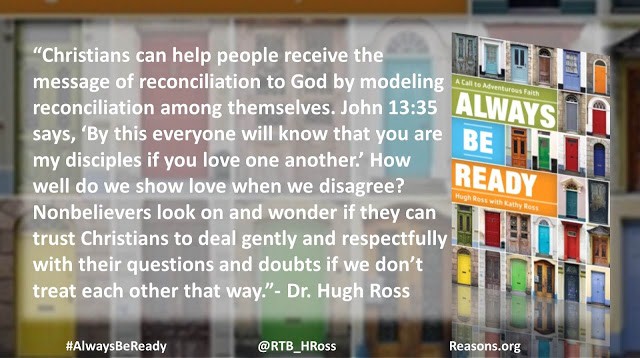

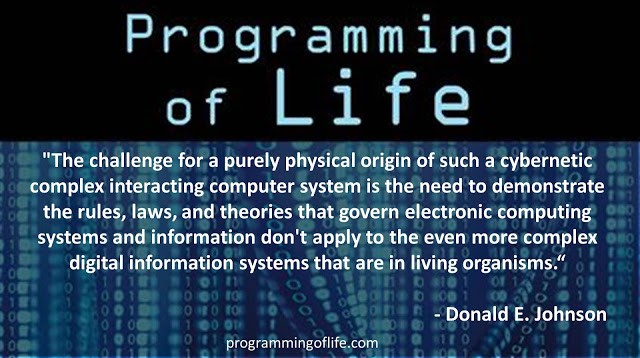
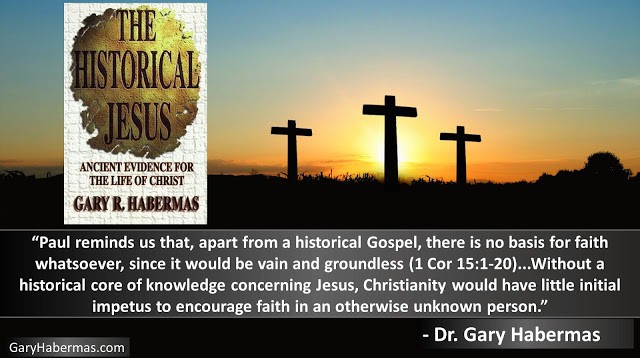
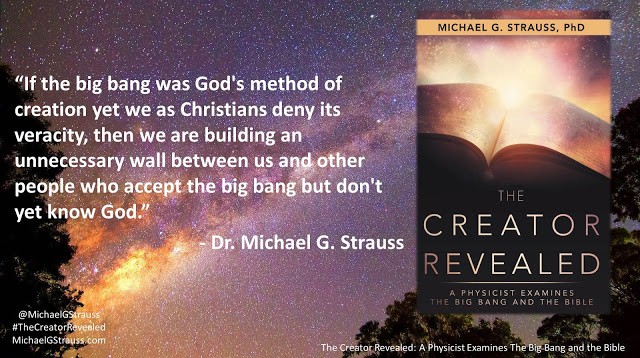
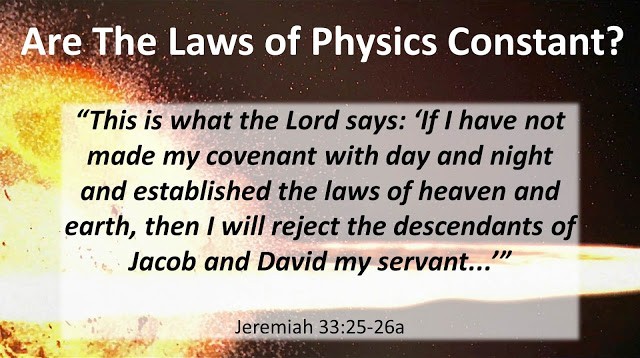
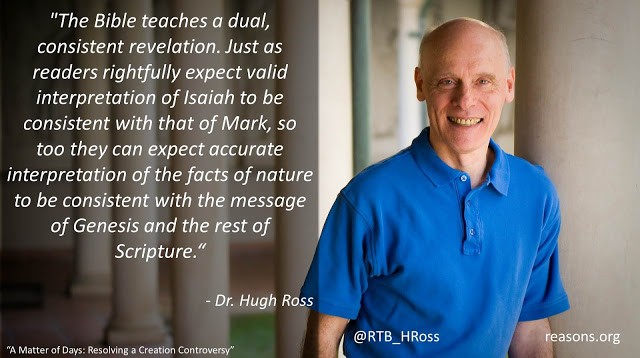
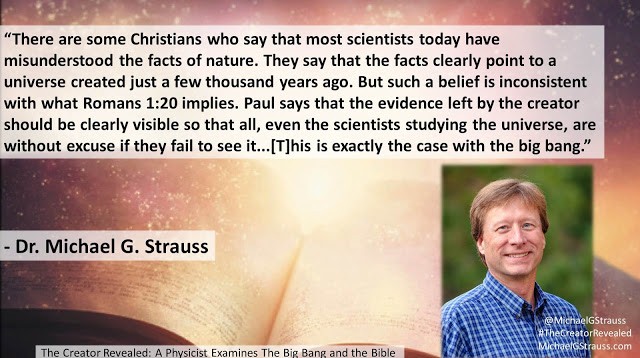
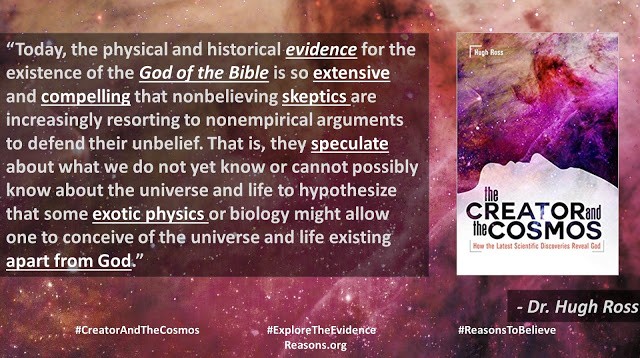
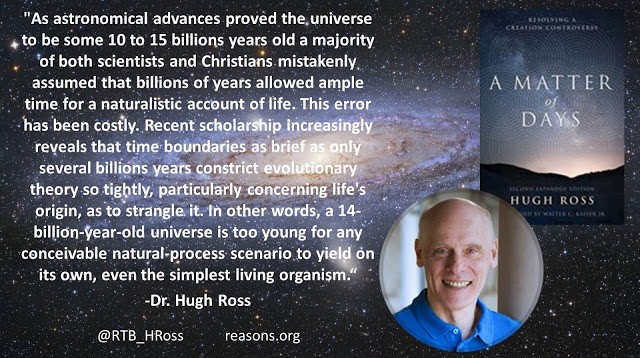
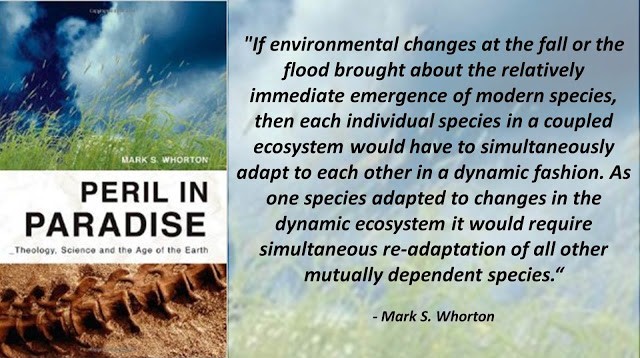
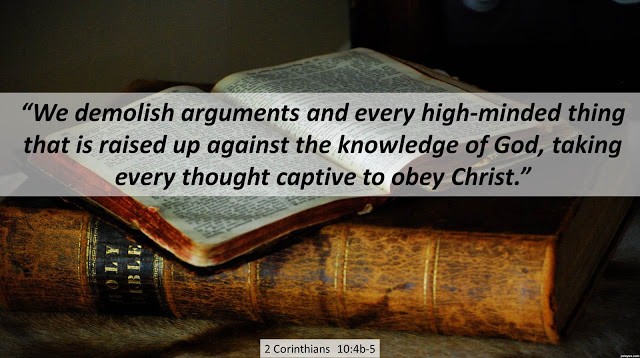









Leave a Reply
Want to join the discussion?Feel free to contribute!